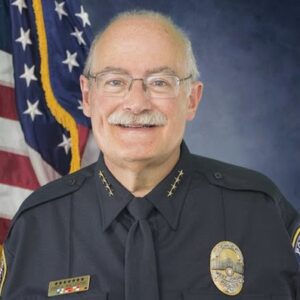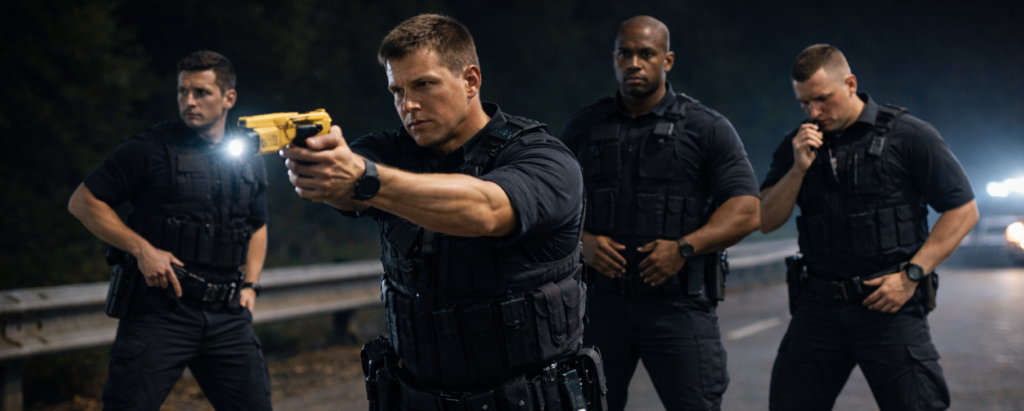United States v. Puckett, 2025 WL 1647195 (8th Cir. 2025)
Missouri State Highway Patrol Trooper James Rorie stopped Billy Puckett for improperly displaying a disabled placard and failure to wear a seatbelt. Trooper Rorie explained the reasons for the stop and asked Puckett about his travel plans. He also asked Puckett whether he had ever been arrested. After Puckett admitted he was a registered sex offender, Trooper Rorie asked Puckett to join him in the patrol vehicle while he verified his license and registration. Puckett agreed.
Trooper Rorie spoke with Puckett about his statutory rape conviction. When he checked Puckett’s criminal history, Trooper Rorie learned Puckett had not registered his social media accounts as required by state law. Trooper Rorie asked for permission to search Puckett’s car and Puckett consented. While searching, Trooper Rorie picked up Puckett’s cell phone. The phone screen lit up and Trooper Rorie saw a Facebook application icon and a Snapchat application icon. Trooper Rorie returned to his patrol car with Puckett’s phone in hand and asked Puckett about the phone. Puckett consented to a search of the device. The search revealed images suspected to be child abuse sexual material (CSAM), leading to Puckett’s arrest.
Trooper Rorie read Puckett his Miranda rights, after which Puckett made further incriminating statements. A subsequent warrant-based search of the phone uncovered additional child sexual exploitation images and videos.
Timely law enforcement content in your inbox: SUBSCRIBE NOW!
Puckett was charged with receiving child sexual exploitation material as well as sex offender registration violations. He asked the trial court to suppress the evidence from his phone and his subsequent statements. The trial court declined. Puckett was convicted at trial and sentenced to 17½ years in prison. He appealed.
The appellate court held Trooper Rorie’s brief questioning and request for consent did not unlawfully prolong the traffic stop. The U.S. Supreme Court has established the “tolerable duration” of a traffic stop as the time required “to address the traffic violation that warranted the stop, and attend to related safety concerns” (Rodriguez v. United States, 575 U.S. 348 (2015)). The Court also held its prior cases “tolerated certain unrelated investigations that did not lengthen the roadside detention.”
In Puckett’s case, the court held the “brief duration of the inquiry within the reasonable period of the traffic stop’s original purpose did not impermissibly prolong it.” The panel also stated, “Trooper Rorie had not completed his traffic-stop related duties when he requested consent to search. The 20 seconds of questioning did not prolong the stop beyond the time that it would have taken Trooper Rorie to issue a written citation or warning and have Puckett return to his vehicle.”
Puckett also claimed that Trooper Rorie picking up the cell phone and viewing its screen was an unlawful search and seizure outside the scope of Puckett’s consent to search his car. Recognizing consent to search the car would not properly extend to a search of a phone within the car, the court observed that a “search for drugs or other stolen items could naturally result in the movement of items during the course of the search, including a cell phone.” Indeed, Rorie did not power up the phone, tap the screen or otherwise manipulate it to view its contents. Thus, the court held, “Trooper Rorie did not meaningfully interfere with Puckett’s possessory interest in the cell phone simply by moving it from the driver’s seat.” As a result, the court held that seizure of the phone was lawful and Trooper Rorie seeing the social media app icons on the screen was not a “search” of the phone contents.
Because Trooper Rorie was commendably familiar with Missouri state sex offender registration laws and recognized Puckett’s installation of social media apps on his phone without registering them constituted a violation, Trooper Rorie had reasonable suspicion to extend the traffic stop beyond addressing the traffic violations.
Puckett also complained the Miranda admonition came too late and he was subject to unlawful custodial interrogation. The court disagreed, holding the questioning prior to the actual arrest was not custodial. “The exchange was conversational and free from intimidation,” wrote the three-judge panel. (Remember: “Talk nice, think mean.”) Nor did the presence of a single officer at the stop constitute the police “dominating” the setting. Indeed, the court held Puckett was not in custody during the pre-Miranda questioning. Thus, his incriminating statements were admissible.
“A cop can be perfectly tactically aware with a smile on their face.”
Note: Regular Xiphos readers have seen me repeat the phrase, “Talk nice, think mean,” for decades. A police trainer recently wrote to me and expressed concern that I was encouraging an aggressive mindset for police. I’m not. I encourage officers always to use the language of kindness. It’s human nature for people to not cooperate, not comply and not consent when officers are abusive in their language. But I do want officers to always be mindful of the best tactics that could well be required by a sudden shift in a suspect’s behavior.
I also want officers to be mindful of the ultimate objective in any traffic stop or other investigation. Just as often as I’ve said, “Talk nice, think mean,” I’ve also reminded officers that “A cop can be perfectly tactically aware with a smile on their face.”
- Blog Articles



